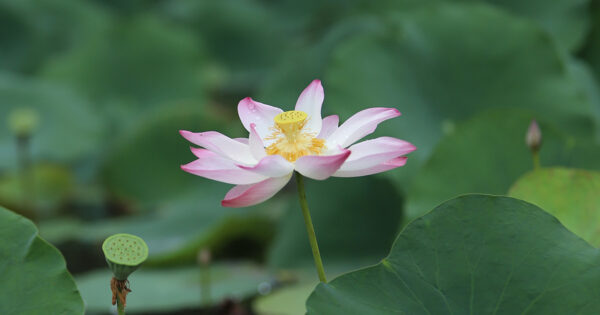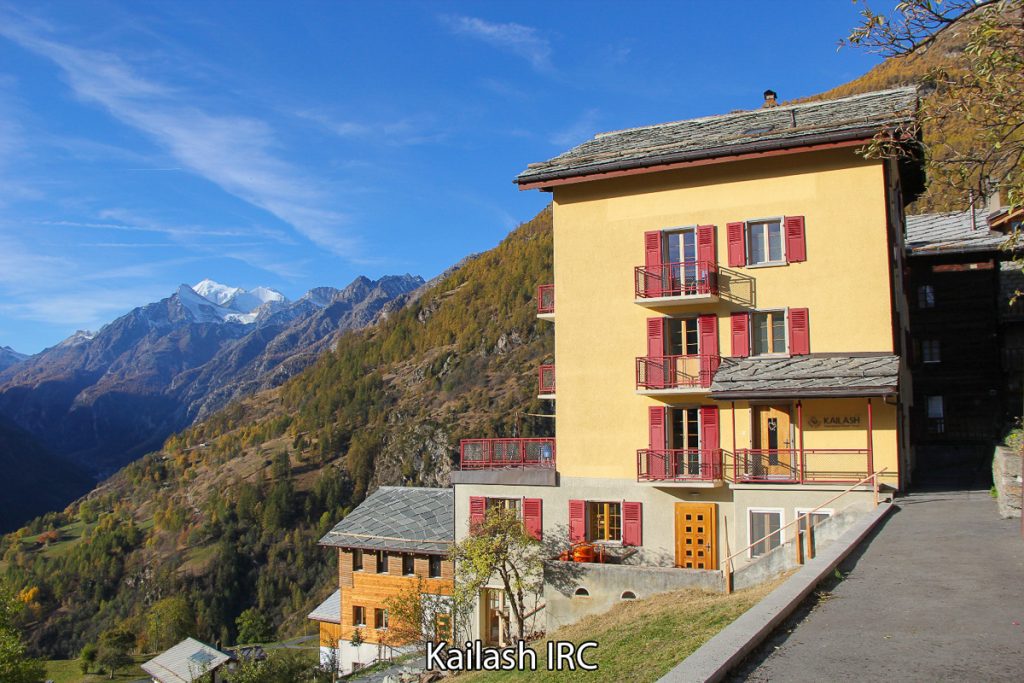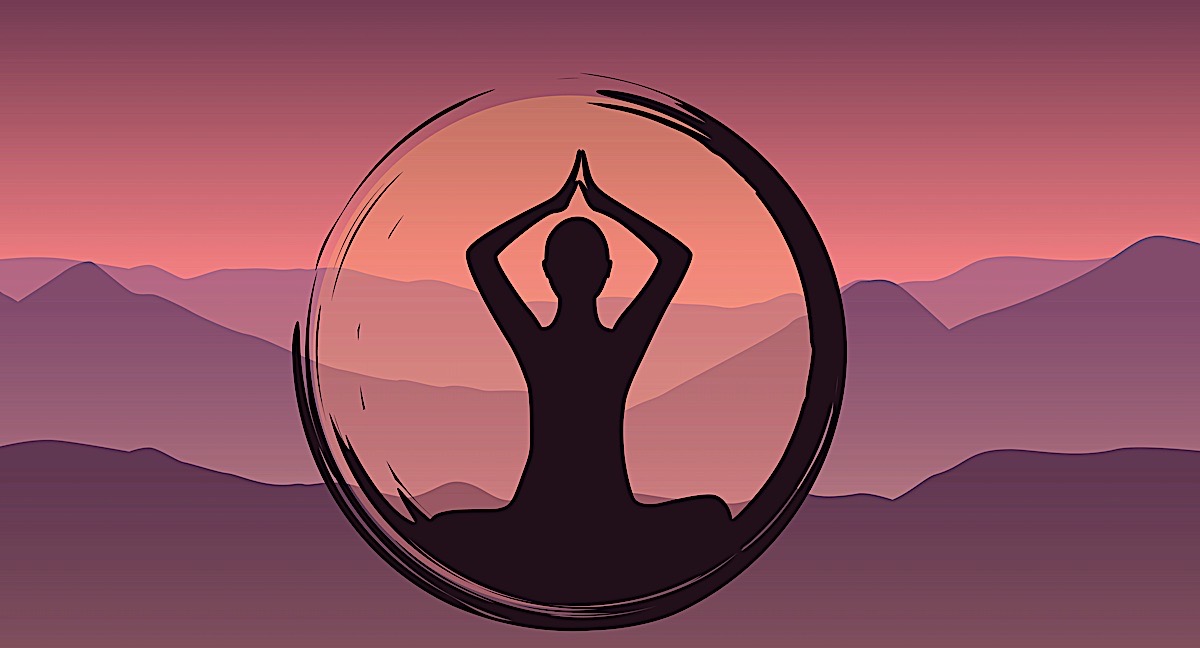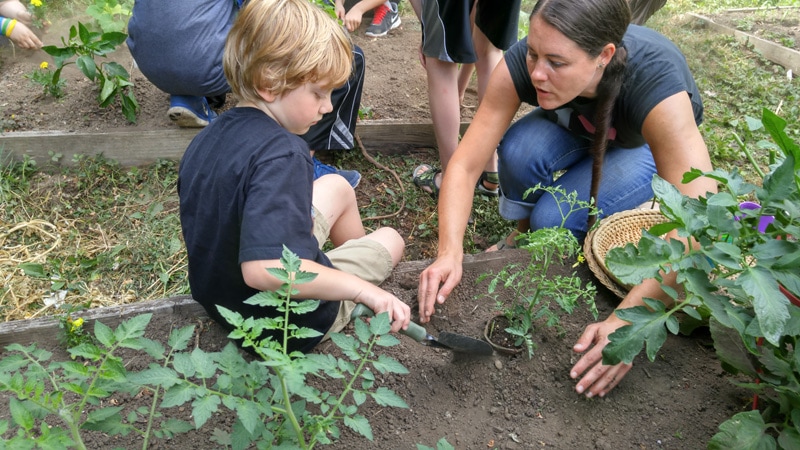Your Despair Over the Environment Is Valid. Embrace It.
Susan Bauer-Wu’s new book, A Future We Can Love, reminds us that in order to effectively face the climate crisis, we need to accept our emotions with compassion. The post Your Despair Over the Environment Is Valid. Embrace It....

Susan Bauer-Wu’s new book, A Future We Can Love, reminds us that in order to effectively face the climate crisis, we need to accept our emotions with compassion.
By Tricycle Jul 07, 2023 Photo by Daniel Mingook Kim on Unsplash
Photo by Daniel Mingook Kim on Unsplash“I watch the news, but I don’t really ‘see’ it. I hear about a mudslide, or a fire that destroys a town and I shake my head, and the suffering feels too great to bear, so I turn away. It isn’t that I don’t care, so I feel helpless to do anything. Or I did, until the people you will meet in this book helped me see that I am actually connected to all of it, that there are already people doing something about it and I can join them,” says Susan Bauer-Wu, author of the new book, A Future We Can Love. Those people are the Dalai Lama and climate activist Greta Thunberg, whose first meeting, hosted by the Mind & Life Institute, Bauer-Wu introduced to the almost one million people who watched it. They are also Indigenous musician, scholar, and community organizer Lyla June; British writer and environmental activist George Monbiot; meditation teacher Willa Blythe Baker; and so many more experts whose work offers an empowering approach to the climate crisis, instead of one of despair, paralysis, or avoidance. By seeking the wisdom of these activists, scientists, and meditation teachers, Bauer-Wu presents a case for hope, grounded in science, and actionable advice to make change.
The book is an invitation, Bauer-Wu says, to join the conversation, and with contemplative practices woven throughout, it’s an active read. One of those practices comes from Dekila Chungyalpa, Director of the Loka Initiative at the Center for Healthy Minds at the University of Wisconsin–Madison, who offers a tonglen-inspired meditation to help with eco-anxiety and despair. Confronting the climate crisis shouldn’t require choosing between facts and emotions, but embracing both. “There’s relief,” Bauer-Wu says, “in giving up the charade that everything’s okay and strength to be found in this deeper communion.”
A Meditation for Eco-Anxiety and Climate Despair
By Dekila Chungyalpa
In this meditation, we will cultivate our interconnectedness with the earth through a variation of tonglen, the Tibetan Buddhist practice of giving and receiving.
Please start by grounding yourself with the earth beneath you. Pay attention to how your feet or any other part of your body that is touching the floor is placed. Notice how you are rooted, through a chair or floor, to the earth and how she literally holds you up—unconditionally, effortlessly, compassionately.
This practice requires that you access the emotions of eco-anxiety or climate distress—grief, anger, vulnerability, sadness, fear—and open yourself up to experiencing them. I ask that you observe how these emotions arise, in what manner and intensity. Pay attention to the shape, color, size, any aspects that give an emotion form. Where does it arise in your body? What are its characteristics? If an emotion overtakes you and washes you away, that is all right. Simply bring yourself back to your purpose of observing, as many times as you need to.
When you have a good hold of the characteristics of your emotions, acknowledge them with respect. Your emotions are a completely valid response to an existential threat to you and your loved ones. It means your inner warning system is working and that is a good thing. So, whatever losses you have witnessed or anticipate, whatever emotions you have suppressed or reacted to, take time to let them all flow out of you and into the earth. Acknowledge and let go.
Notice your incoming breath—the air entering your nostrils, your mouth, filling up your belly. That oxygen that keeps you alive is coming from forests and oceans, from plants and phytoplankton, from all over the world and from outside your window. Rest in the awareness of this physical manifestation of the earth’s compassion for you.
Every aspect of you right now, the air that fills your lungs, the clothes that you wear, the food you ate today, all of that comes from outside of you. This ever-present, life-encompassing, compassionate earth sustains you. You are part of this effortless cycle of give and take. You are participating in an exchange with the elements, with other living beings, with the earth herself. With each inhale, breathe in the earth’s compassion, and with each exhale, breathe out gratitude.
Relax here in this indivisible connection with all that surrounds you; breathe in compassion, and breathe out gratitude.
Now comes the hard part. Visualize a place or being or community you love that is suffering from climate and environmental harm. It could be a river, a species, the community you belong to, or even the earth herself rotating in space.
Resting in and rooted by the compassion and gratitude you hold, I want you to access your intention, your motivation to alleviate the suffering of your beloved. Now, when you inhale, breathe in their suffering; and when you exhale, breathe out your compassion.
This can sometimes bring up fear, or you may be swept away by grief. If that happens, simply go back to grounding yourself in the earth’s support. When you’re ready, come back to inhale the pain and suffering, exhale your compassion and healing.
You can practice this for as long as you feel comfortable and at ease. Do not force yourself; you can always come back to this stage another time.
When you are ready, I would like you to return to the earlier exchange of compassion and gratitude. However, this time you will reverse the direction. Let yourself inhale the
earth’s gratitude for your existence; and when you exhale, offer the compassion and love you have for her. You are inextricably connected with her in every moment and there is no division here.
Wonderful. As you emerge from this practice, please set the intention to try it again the next time climate distress or eco-anxiety arises. You can also compress the practice and simply rest in the give-and-take of compassion and gratitude for short moments throughout your day. The work you do is critically important for safeguarding the earth and all the life she carries. I hope this practice strengthens your inner resilience as you go forward.
♦
From A Future We Can Love: How We Can Reverse the Climate Crisis with the Power of Our Hearts and Minds by Susan Bauer-Wu © 2023 by the Mind & Life Institute. Reprinted in arrangement with Shambhala Publications, Inc. Boulder, CO. www.shambhala.com
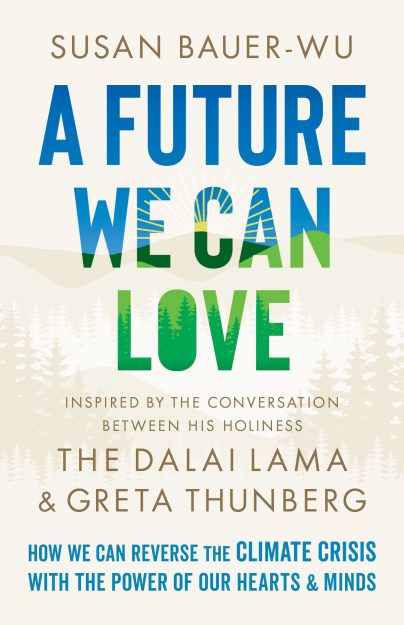
![]()
Thank you for subscribing to Tricycle! As a nonprofit, we depend on readers like you to keep Buddhist teachings and practices widely available.
This article is only for Subscribers!
Subscribe now to read this article and get immediate access to everything else.
Already a subscriber? Log in.

 Troov
Troov 







